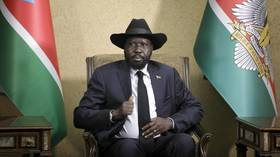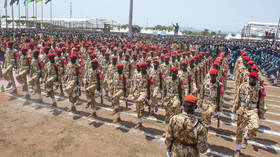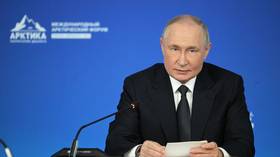South Sudanese leader fires top officials after shooting

South Sudanese President Salva Kiir has fired the country’s military and police chiefs, as well as the central bank governor. The decision, announced late Monday, follows recent tensions within the East African nation’s security institutions.
In a decree read on state-owned television network SSBC, Kiir named Paul Nang Majok as the new head of South Sudan’s defense forces, replacing General Santino Deng Wol. The president reassigned Wol to the Defense Ministry as its undersecretary. He appointed Abraham Peter Manyuat as inspector-general of police after dismissing Atem Marol Biar.
According to a separate decree, the South Sudanese leader also removed James Alic Garang from his position as governor of the central bank and appointed Johnny Ohisa Damian in his place.
Damian’s appointment marks his return to the financial institution, which he previously led from August 2022 until his dismissal in October last year, when Garang, an International Monetary Fund (IMF) adviser, assumed control.
The presidential decrees did not specify the reasons for the dismissals, but Reuters cited security sources as saying that the restructuring could have been sparked by discontent within the army ranks, including over unpaid salaries for about a year.
The East African nation’s economy has been in decline since the end of a five-year civil war that began in 2013 over a feud between President Kiir and his former vice president, Riek Machar. According to the UN, it forced nearly 2.32 million people to flee to neighboring countries, reducing South Sudan’s oil production – once the primary driver of its economy. In August 2018, the warring factions reached a power-sharing agreement, bringing the fighting to an end. However, the landlocked state has remained volatile.
The transitional government, which in September postponed long-delayed general elections scheduled for December, has also, according to Bloomberg, been struggling to address a cash crisis after an oil pipeline that accounts for over 90% of its revenue ruptured inside neighboring war-torn Sudan.
This week’s changes come less than a month after heavy gunfire erupted in the capital, Juba, between the army and the guards of former national intelligence agency chief Akol Koor Kuc. Gen. Koor Kuc had led the intelligence service since the country’s independence from Sudan in 2011, but President Kiir fired him in early October, reportedly placing him under house arrest.
The two officials named to the new security positions are said to be from Kiir’s home state of Warrap in the Bahr el Ghazal region.















